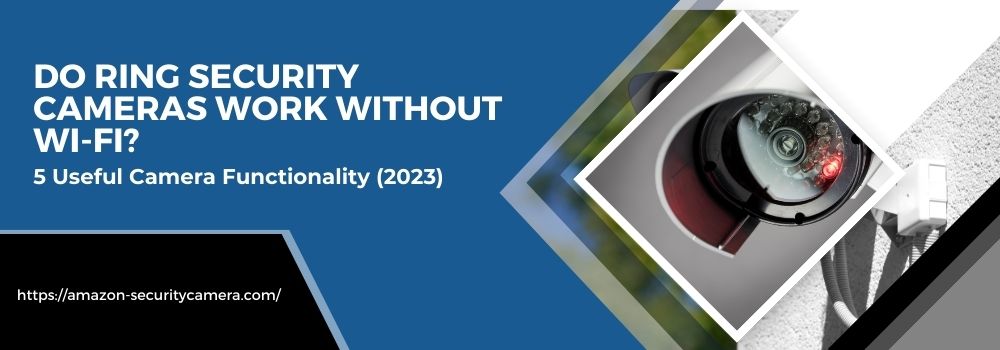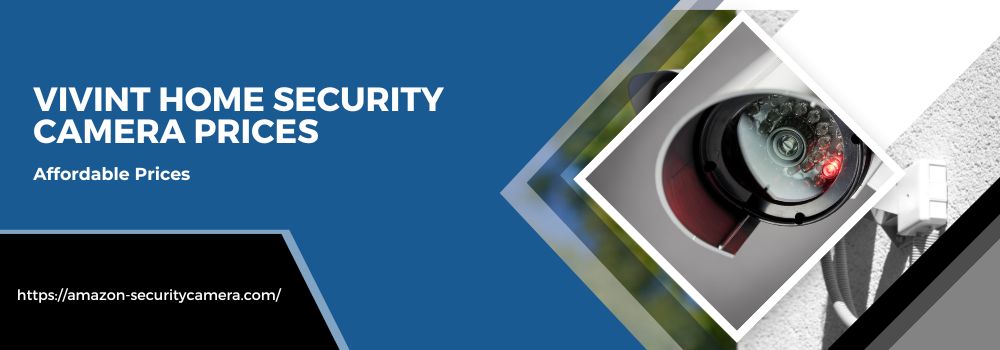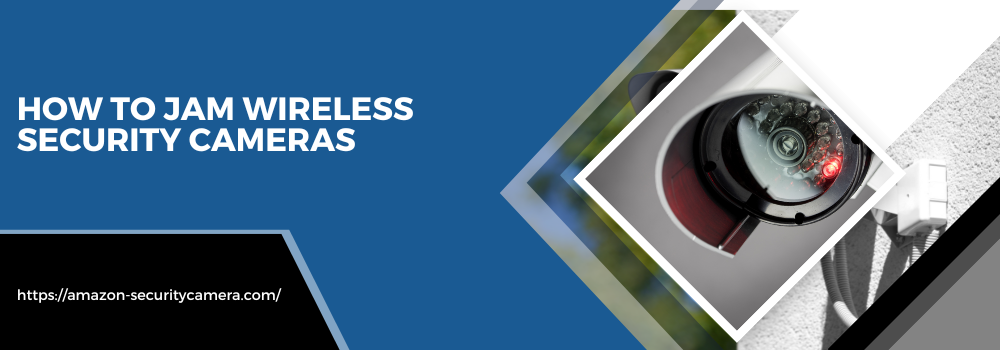What’s the difference between surveillance cameras and security cameras? As a business owner, you know the importance of keeping an eye on your property and having security measures in place to protect it. One way of doing this is through surveillance cameras and security cameras; however, many people don’t understand the difference between these two devices.
Surveillance cameras are primarily used for monitoring and recording activities in a specific area. They can be placed indoors or outdoors, and are commonly found in public places such as banks, malls, parking lots, and streets. These cameras are typically connected to a central monitoring system where the footage can be viewed in real-time.
In this blog post, we’ll be exploring the differences between surveillance cameras and security cameras to help inform you about their various functions so that you can make an informed decision when considering what type of system best meets your needs.
What’s the difference between surveillance cameras and security cameras
Read an article about What’s the difference between surveillance cameras and security cameras.
Read another article about Do I need a license to install security cameras. 5 Best Tips
Table of Contents
Understanding Surveillance Cameras
Surveillance cameras, primarily designed for monitoring activities, are a common sight in public and commercial spaces. They record ongoing activities in the area they cover, and this footage can be stored for later viewing or watching in real-time. These devices are fundamental tools for safety measures and crime deterrence in high-traffic areas.
Despite their public use, surveillance cameras are also effective in residential spaces, particularly in neighborhoods where security concerns exist. Homeowners can monitor their properties remotely, providing an added layer of security and peace of mind. The presence of these cameras alone can deter potential trespassers, contributing to a safer environment.
The Role of Security Cameras
Unlike surveillance cameras, security cameras are more proactive in their approach to property protection. These devices are equipped with features like motion detection and alerts that notify the owner when unusual activity is detected. This allows for immediate action, which can prevent potential incidents before they occur.
Security cameras are widely used in both commercial and residential settings. In businesses, they help protect valuable assets by deterring theft, while in homes, they offer immediate alerts to homeowners about potential intruders. The real-time information provided by security cameras is invaluable in urgent situations, enabling swift responses.
Identify What Type of Camera Best Fits Your Needs
When deciding between a surveillance camera and a security camera, it’s essential to consider your specific needs. A surveillance camera can be suitable if you want a constant feed of activities in a particular area. It serves as a deterrent for potential criminals and provides crucial evidence if a crime occurs. They are particularly useful in high-traffic public or commercial areas.
On the other hand, a security camera may be the better option if immediate alerts to unusual activities are a priority. These cameras, with their real-time alerts and integrated features such as motion detection, are ideal for scenarios where immediate action is required. They are often the preferred choice for both businesses looking to protect assets and homeowners wanting to guard against potential intruders.
Determine the Appropriate Camera Locations to Maximize Surveillance Range
Choosing the right location for your surveillance or security cameras can significantly enhance their effectiveness. Optimal placement ensures comprehensive coverage of the area, reducing blind spots and increasing the likelihood of capturing relevant footage. It’s vital to consider high-traffic areas, as well as potential points of entry when deciding camera locations.
The height at which the camera is installed also matters. Positioning cameras too low may leave them within easy reach of vandalism, while mounting them too high may compromise the quality of the footage. Striking the right balance is crucial, ensuring the cameras are out of easy reach, yet capable of capturing clear and detailed images.
Moreover, consider the lighting conditions of the area to be monitored. Cameras need sufficient light to record clear footage. Be sure to place cameras in well-lit areas or consider models with night vision capabilities for locations with less optimal lighting. Remember, the key is to maximize your surveillance range to keep your property safe and secure.
Learn the Different Types of Cameras Available: Wireless, Wired, and IP-Based Options
There’s a wide variety of surveillance and security cameras available on the market today, each with its own set of advantages and disadvantages. Let’s take a closer look at the differences between wireless, wired, and IP-based cameras.
Wireless Cameras
Wireless cameras are a popular choice among homeowners and businesses alike due to their flexibility and ease of installation. These systems use Wi-Fi to transmit footage to a receiver that’s connected to your storage device or network. This eliminates the need for extensive wiring and allows for easy repositioning as your security needs change.
However, wireless cameras rely on a stable internet connection to function effectively, making them potentially susceptible to connection issues. Moreover, they have limitations in range, and the camera must be within a certain distance from the router to maintain a strong signal.
Wired Cameras
Wired cameras, on the other hand, connect directly to a recording device through a physical cable. This hardwired connection provides a reliable, high-quality signal, which is less susceptible to interference or connection issues. Their consistent performance makes wired cameras an excellent choice for businesses or residences that require long-term, robust surveillance solutions.
Nevertheless, the installation of wired systems can be complex and time-consuming due to the need for running cables throughout the premises. Additionally, their fixed nature means they aren’t as easily repositioned as their wireless counterparts.
IP-Based Cameras
IP-based or network cameras are a newer generation of cameras that transmit digital video over a network. These devices offer high-resolution video and advanced features like analytics and remote access. With an IP-based system, you can view your surveillance footage from anywhere, provided you have internet access.
While IP-based cameras have many benefits, they can be more expensive and require a stable internet connection to function correctly. They may also require additional IT support for setup and maintenance.
Understand the Importance of Data Privacy When Installing a Surveillance System
Data privacy is a crucial aspect to consider when setting up a surveillance system. Your cameras are continuously collecting and transmitting data, which, if fallen into the wrong hands, can lead to severe privacy breaches. Regardless of whether you’re monitoring a commercial space or your home, ensuring the confidentiality and integrity of the recorded footage is paramount.
Not only do you have to safeguard your data from potential external threats, but you also have to comply with privacy laws and regulations. These laws vary by region and are especially stringent when it comes to recording public spaces or areas where individuals expect privacy. Non-compliance can result in hefty fines and penalties, making it essential to understand and adhere to these regulations when installing and operating a surveillance system.
Conclusion
Surveillance and security cameras are valuable tools to protect your property, but it’s crucial to understand their differences and capabilities before investing in one. Consider your specific needs, determine optimal camera locations, explore the various types of cameras available, and ensure data privacy compliance for a successful and effective surveillance system. With the right knowledge and careful planning, you can keep your property safe and secure with the help of surveillance cameras. So, it is essential to understand the difference between surveillance and security cameras before investing in them.
Surveillance cameras are primarily used for monitoring and recording activities in a specific area, making them ideal for scenarios where immediate action is required. They can be placed indoors or outdoors and are commonly found in public places such as banks, and malls.
FAQ
Q#1: Can I use surveillance cameras for my home?
A: Yes, you can install surveillance cameras in your home to monitor activities and enhance security. However, it’s crucial to ensure data privacy compliance and follow any applicable laws or regulations.
Q#2: Can I install multiple types of cameras for my surveillance system?
A: Absolutely! A combination of wireless, wired, and IP-based cameras can provide comprehensive coverage for your property. Just make sure to consider the specific needs and limitations of each type before making a decision.
Q#3: How do I ensure my surveillance system is data privacy compliant?
A: It’s essential to research and understand the privacy laws and regulations in your region regarding surveillance cameras. Additionally, make sure to secure your network and regularly update your system to prevent any potential data breaches. So, it is crucial to prioritize data privacy when setting up a surveillance system.
Q#4: Can I access my surveillance footage remotely?
A: This depends on the type of camera and system you have installed. IP-based cameras offer remote access capabilities, while wired or wireless systems may require additional configuration or equipment for remote viewing. Consult with a professional installer to determine the best option for your specific needs. So, make sure to carefully consider your surveillance system’s capabilities and limitations before making any decisions.



